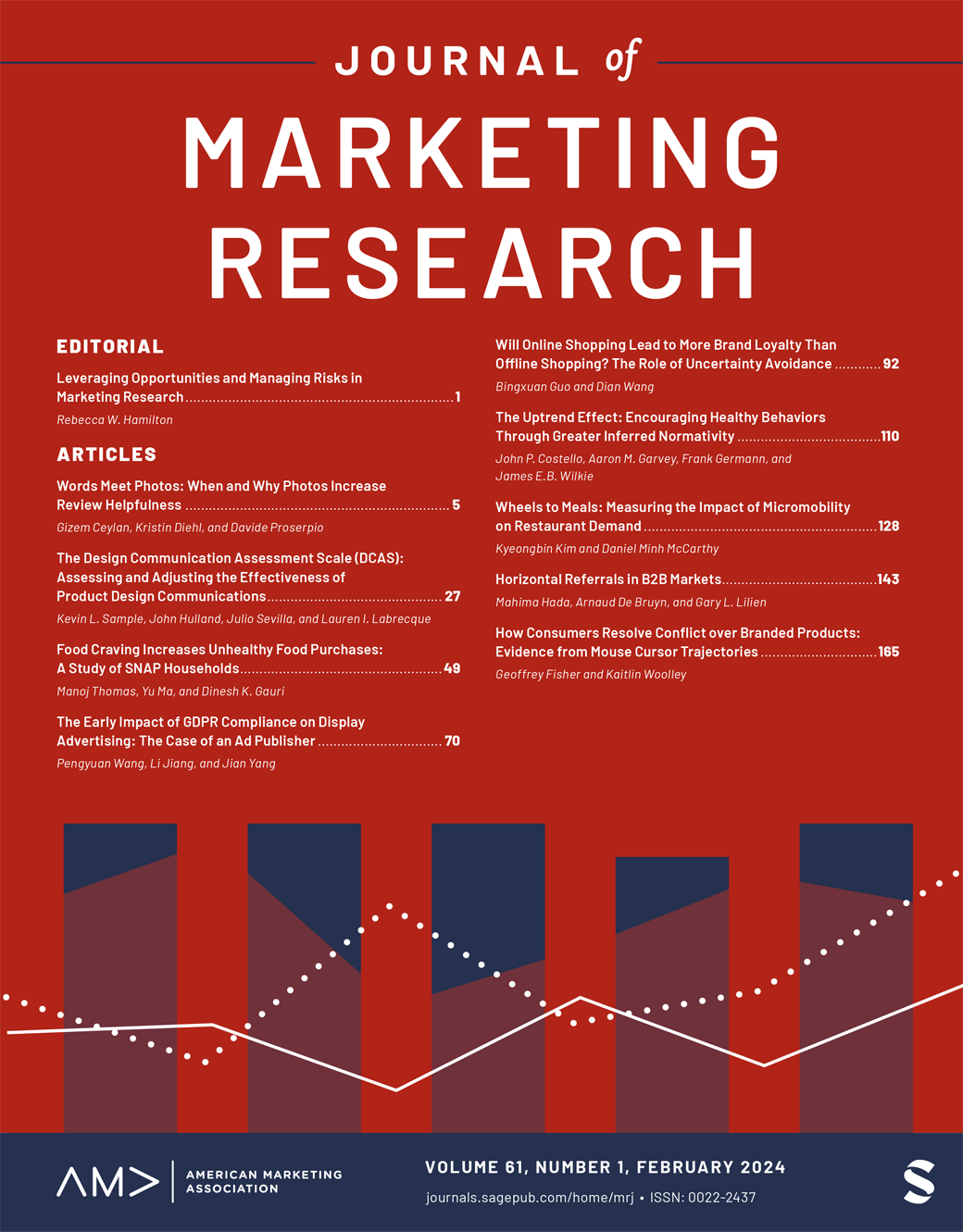EXPRESS:网上购物会比线下购物带来更多的品牌忠诚度吗?避免不确定性的作用
IF 5
1区 管理学
Q1 BUSINESS
引用次数: 3
摘要
虽然越来越多的从线下到线上购物的转变促使营销人员了解这种转变对品牌忠诚度的影响,但现有营销文献的结论并不一致。借鉴线上和线下购物的区别,作者开发了一个专注于不确定性规避(UA)的理论框架,以调和文献中的不一致性。具体来说,作者认为高(低)ua个体在网上购物时比在线下购物时更(更少)忠于品牌,因为前者(相对于后者)的产品体验更不可预测,线上和线下购物之间的区别会增加(减少)高(低)ua个体对品牌的忠诚度。与这一逻辑相一致,我们发现无形价值显著性,一个理论上和管理上相关的边界条件,减弱了在线(vs.离线)购物和用户体验之间的相互作用。通过八项研究,包括二手数据、实地调查、在线和实验室实验,作者发现了支持这一理论立场的证据。本研究为忠诚文献和跨文化研究提供了新的视角。本文最后还讨论了本文的管理意义。本文章由计算机程序翻译,如有差异,请以英文原文为准。
EXPRESS: Will Online Shopping Lead to More Brand Loyalty than Offline Shopping? The Role of Uncertainty Avoidance
While the growing transformation from offline to online shopping urges marketers to understand the impacts of this shift on brand loyalty, conclusions from the existing marketing literature have been inconsistent. Drawing upon the distinctions between online and offline shopping, authors develop a theoretical framework that focuses on uncertainty avoidance (UA) to reconcile the inconsistencies in the literature. Specifically, authors argue that high (low)-UA individuals are more (less) brand loyal when shopping online than offline because the product experience is less predictable in the former (vs. latter), a distinction between online and offline shopping that increases (reduces) high (low)-UA individuals’ tendency to stay with the brands. Consistent with this logic, we uncover that intangible value salience, a theoretically and managerially relevant boundary condition, attenuates the interplay between online (vs. offline) shopping and UA. Across eight studies that consist of secondary data, field surveys, and online and laboratory experiments, authors find converging evidence to support this theoretical stance. The current research offers insights into the loyalty literature and cross-cultural research. The managerial implications of the paper are also discussed at the end of the paper.
求助全文
通过发布文献求助,成功后即可免费获取论文全文。
去求助
来源期刊

Journal of Marketing Research
BUSINESS-
CiteScore
10.30
自引率
6.60%
发文量
79
期刊介绍:
JMR is written for those academics and practitioners of marketing research who need to be in the forefront of the profession and in possession of the industry"s cutting-edge information. JMR publishes articles representing the entire spectrum of research in marketing. The editorial content is peer-reviewed by an expert panel of leading academics. Articles address the concepts, methods, and applications of marketing research that present new techniques for solving marketing problems; contribute to marketing knowledge based on the use of experimental, descriptive, or analytical techniques; and review and comment on the developments and concepts in related fields that have a bearing on the research industry and its practices.
 求助内容:
求助内容: 应助结果提醒方式:
应助结果提醒方式:


